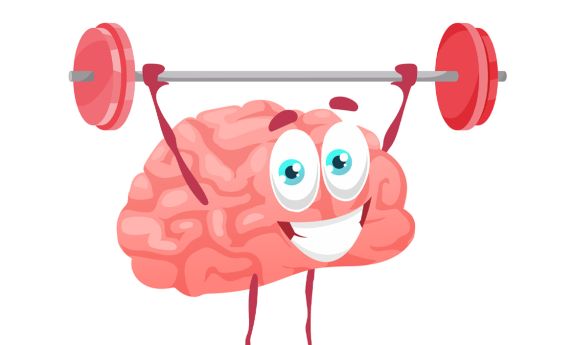Exercise Your Body to Keep Your Mind Healthy
The link between physical activity and mental health provides strong motivation to get moving


“Sometimes people are kind of surprised at how working out can be a holistic change, a holistic benefit,” Bradley said.
According to Dr. Rhonda Merwin, an associate professor in the Duke Department of Psychiatry and Behavioral Sciences, there’s plenty of science to back this connection up.
In 2020, Merwin teamed with then-Duke faculty member Dr. Patrick J. Smith, now an associate professor of Psychiatry at the University of North Carolina at Chapel Hill, to co-author a review paper outlining links between exercise and the management of mental health disorders.
“There is actually a robust amount of literature that supports the association,” Merwin said. “And we also understand that it’s because of both biological and behavioral mechanisms.”

The paper cites evidence that suggests that regular physical activity has considerable promise as a treatment for symptoms of depression and anxiety. The paper states that the mental health improvements are primarily accomplished in two ways.
Regular exercise can enhance neuroplasticity, or the ability of neural pathways in the brain to grow or reorganize, which can improve and sharpen cognitive function. Also, sticking to an exercise routine can lead to behavioral changes, which leave people better able to manage daily routines and stressors.
“People that engage in journeys of increased physical activity often learn how to set and achieve goals, how to problem solve, how to plan and organize their activities,” Merwin said. “They learn how to self-monitor and track their own behavior and regulate their internal experiences with mindful awareness of the breath.”
Also, a pair of studies published earlier this year show that regular exercise can have effects on how the brain produces important chemicals that aid in cognitive function.
Duke staff and faculty can get help incorporating more physical activity in their lives with free fitness programs such as the Duke Run/Walk Club from LIVE FOR LIFE, Duke’s employee wellness program.
Alistar Erickson-Ludwig, program director for the Master of Quantitative Management programs at the Fuqua School of Business, knows the value of exercise well.

Prior to the COVID-19 pandemic, Erickson-Ludwig visited the Planet Fitness gym near her Durham home about three times per week.
But during the early days of the pandemic, when she was working from home alongside her husband, Erickson-Ludwig needed a way to exercise so she could stay balanced.
The answer came in the form of a used treadmill, which Erickson-Ludwig bought online and, along with her husband and a friend, lugged from Raleigh to the second floor of her home.
From then on, Erickson-Ludwig was able to spend good chunks of her free time walking on the treadmill – often while talking on the phone or in quiet early-morning reflection – working out her body and helping focus her mind.
“It wasn’t about physical fitness per se, I can’t tell you if I lost weight or anything,” Erickson-Ludwig said. “It was just as much mental. It gave me a chance to be with my thoughts. It was a good time to check in with myself.”
Send story ideas, shout-outs and photographs through our story idea form or write working@duke.edu.
Follow Working@Duke on Twitter, Facebook, and Instagram.